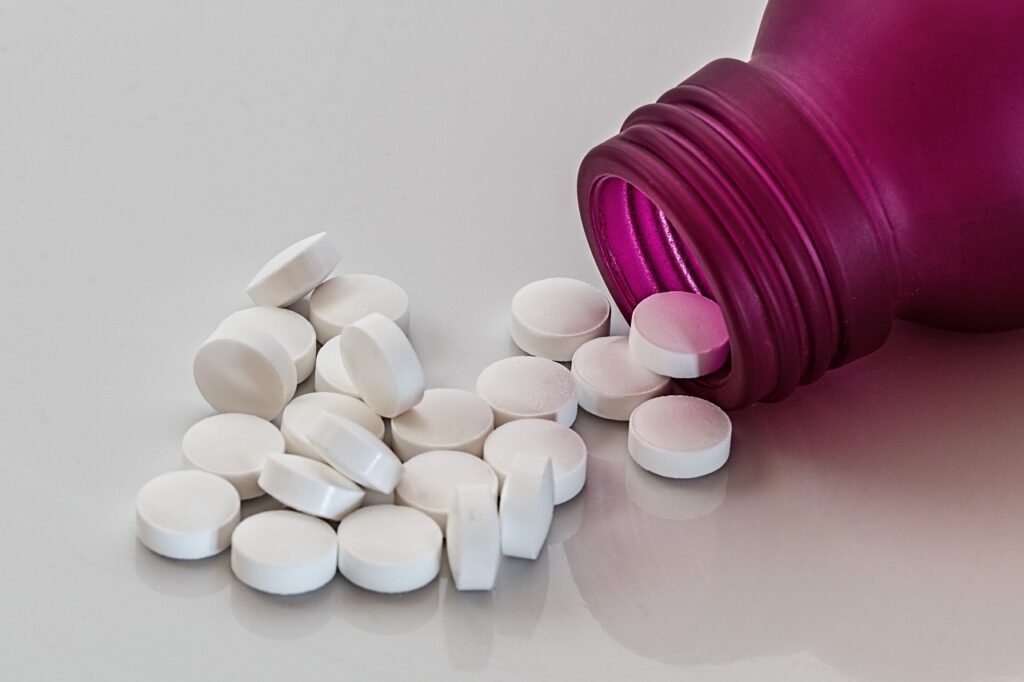20+ Years Experience
Specialist Inpatient Rehabilitiation

Are you tired of feeling trapped in a seemingly endless cycle of unhealthy relationships?
If so, love addiction might be at the root of your struggles.
This blog post will take you through the complexities of love addiction, its impact on romantic relationships, and the various treatment options available to provide love addiction help.
Let’s embark on this journey towards healthier relationships and a more fulfilling life.
Love addiction is a complex and often misunderstood condition characterised by an unhealthy attachment to romantic partners, leading to negative consequences in relationships and individual well-being.
By discontinuing the cycle of love addiction, especially when the love interest is emotionally unresponsive or involved in abusive relationships, one can avert negative life consequences.
Potential causes of love addiction or pathological love, such as a history of trauma, low self-esteem or self worth, or lack of healthy coping skills, can lead to compulsive behaviours.
In order to effectively treat love addiction, it is crucial to access mental health resources and explore various treatment options.
Individuals struggling with love addiction frequently display obsessive, compulsive, and codependent behaviours in their romantic relationships, which can have negative consequences for both partners.
Love addicts often idolise romantic partners and expect them to provide a sense of purpose, yet they are unable to accept love from their partner, resulting in a no-win situation.
It is essential to identify the signs of codependency, acknowledge that you are in a codependent relationship, and start devising methods to modify or alter your relationship to build healthier connections.
Recognising these traits and behaviours is the first step towards breaking the cycle of love addiction and fostering healthier relationships.
The consequences of love addiction in romantic relationships can be instability, emotional distress, and even abuse, thus making it essential to address and treat the addiction with more mental health resources.
Love addiction can result in an inability to commit to a partnership, mistrust of partners, and fear of being left behind.
Emotional distress caused by love addiction may include feelings of insecurity, jealousy, and low self-esteem.
Furthermore, love addiction can lead to controlling behaviour, verbal and physical abuse, and manipulation.
By recognising the impact of love addiction on romantic relationships, one can take the necessary steps towards recovery and healthier connections.
Recognising the symptoms and causes of love addiction is essential for seeking help and beginning the recovery process.
The most discernible indication of love addiction is an unwholesome fixation with one’s partner that leads to the execution of obsessive compulsions, such as calling them too often or even stalking them.
It is also suggested that alcohol/drug abuse and mental health disorders may be associated with love addiction.
By acknowledging the symptoms and causes of love addiction, individuals can take the first step towards obtaining assistance and initiating the recovery process.
Some typical indicators of love addiction include:
By being aware of these common symptoms, individuals can recognise the presence of love addiction in their lives and take the necessary steps towards recovery.
Identifying these symptoms is crucial in breaking the cycle of unhealthy and unstable relationships and fostering healthier connections.
If you think you are addicted to love and are looking for help, please make sure to speak to our team today.
Potential causes of love addiction could include childhood trauma, low self-esteem, and utilising relationships to fill emotional voids.
Childhood trauma, including child abuse, rejection, and emotional neglect, may have a bearing on an individual’s susceptibility to love addiction.
It is evident that the manner in which parenting adults display love, converse about love, and exemplify it between each other is of great importance to the learning process of giving and receiving healthy love, which begins in childhood.
Understanding the potential causes of love addiction not only helps individuals recognise their own struggles but also provides insights into how they can address these underlying issues to overcome the addiction and build healthier relationships.
Obtaining assistance for love addiction is an essential action in managing the condition and cultivating more beneficial relationships.
Acknowledging the requirement for transformation, pursuing therapy, and implementing self-soothing and coping skills can facilitate the alteration of love addiction.
Acquiring knowledge regarding love addiction is of great significance as it can empower individuals to comprehend why their conception of love exerts such a strong influence over them.
A mental health professional who is experienced in treating love addiction can offer valuable guidance and support during the recovery process.
To locate a mental health professional for love addiction, make sure to contact our rehabilitation centre today. We have plenty of support and treatment facilities available to help you overcome emotional challenges and love addict behaviour.
By working with a mental professional, individuals can gain insights into their love addiction, develop healthy coping strategies, and address underlying issues that may be contributing to their addiction.
The guidance and support provided by a mental health professional can be invaluable in the recovery process.
Support groups and resources, including Love Addicts Anonymous and 12-step programs, can offer additional assistance and a sense of community for those dealing with love addiction.
These resources can provide a safe space for individuals to share their experiences, learn from others, and develop healthy coping strategies to overcome their addiction.
Participating in group therapy and utilising available resources can not only offer emotional support but also help individuals stay accountable on their journey towards recovery.
By connecting with others who share similar struggles, individuals can find solace and encouragement in knowing that they are not alone in their fight against love addiction.
Various treatments exist for love addiction, which aims to address different aspects of the condition and promote healthier relationship habits.
Treatment options include Cognitive Behavior Therapy (CBT), building self-confidence, and addressing co-occurring disorders.
By exploring these treatment options, individuals can find the most effective approach to overcoming their love addiction and fostering healthier relationships.
There are many treatments when it comes to being addicted to love. Simply get in touch for help and support and we will offer healthy ways to move past this addiction.
Cognitive Behavioral Therapy (CBT) is a widely utilised treatment approach that seeks to identify and address maladaptive thought patterns associated with love addiction.
CBT assists individuals in recognising and evaluating unhelpful beliefs about themselves and their relationships and cultivating healthier coping mechanisms.
By engaging in CBT, individuals can learn to challenge their negative thought patterns, develop healthier beliefs about love and relationships, and ultimately create a more balanced and fulfilling romantic life.
This evidence-based therapy has proven to be effective in treating love addiction and improving overall mental health.
Fostering self-esteem and self-love is indispensable for prevailing over love addiction, as it assists individuals in discovering gratification within themselves instead of relying exclusively on romantic partners.
Constructing self-confidence necessitates time and exertion.
The following strategies may be of assistance: engage in self-care, dispute negative musings, set achievable objectives, associate with positive figures, exhibit self-compassion, emphasise your strengths, and show appreciation.
By building self-confidence, individuals can learn to find satisfaction and happiness within themselves, reducing their reliance on partners and ultimately breaking the cycle of love addiction.
Co-occurring addiction refers to the situation wherein an individual experiences both mental health disorders and substance abuse, which often result in exacerbating one another.
Addressing other disorders like substance abuse is essential when treating love addiction, as these issues can worsen the condition and impede recovery.
Co-occurring disorders associated with love addiction may include depressive and anxiety disorders, attachment disorder, ADHD, personality disorder, and substance abuse disorder.
By addressing the presence of co-occurring disorders and substance use, individuals can better understand the complexities of their love obsession and ensure a more comprehensive and effective treatment approach.
This holistic approach to treatment can greatly improve the chances of successful recovery for a love addict.
In addition to professional help and treatment, there are practical tips that can be implemented to help individuals manage their love addiction and develop healthier relationship habits.
These strategies include establishing boundaries, cultivating healthy relationship patterns, and strengthening self-confidence.
Establishing boundaries involves setting limits on what is acceptable and unacceptable behaviour in relationships. This can be done.
The establishment of boundaries in a romantic relationship is imperative for upholding one’s sense of independence and avoiding codependent behaviour.
Setting boundaries can involve clearly communicating personal limits, respecting the boundaries of others, and ensuring that both partners maintain a sense of autonomy and personal space.
Establishing boundaries not only helps individuals maintain a healthy sense of self but also promotes healthier, more balanced relationships.
By setting and respecting boundaries, individuals can avoid falling into the trap of codependency and maintain a more fulfilling romantic life.
Recognising and managing triggers, including reminders of prior partners or situations that incite unhealthy behaviours, can aid individuals in avoiding relapse and sustaining progress in their recovery.
To identify and manage triggers, it is important for individuals to be cognizant of their own triggers and be prepared to take action when they arise.
This may include avoiding certain people or situations or engaging in activities that help to reduce stress and anxiety.
By identifying and managing triggers, individuals can prevent relapse and maintain their progress in recovery.
This proactive approach can help individuals stay on track towards overcoming love addiction and fostering healthier relationships.
Cultivating healthy relationship habits, such as open communication and mutual respect, can assist individuals in overcoming romantic love addiction and constructing more satisfying connections with partners.
Some habits that are conducive to a healthy relationship include expressing appreciation, sharing pertinent information, setting aside time for one another, demonstrating respect, displaying affection, enhancing communication, establishing a connection, exercising forgiveness and patience, providing understanding and support, and cultivating trust and honesty.
By fostering healthier relationships, individuals can break the cycle of love addictions and build more fulfilling connections with their partners.
These habits not only support personal growth but also promote healthier, more satisfying relationships for both partners.
In conclusion, understanding and addressing love addiction is crucial for individuals seeking healthier, more fulfilling relationships.
By recognising the symptoms and causes, seeking professional help, exploring various treatment options, and implementing practical tips for coping, individuals can break the cycle of love addiction and build stronger, more satisfying connections with their partners.
Remember, recovery is possible, and with the right support and resources, you can overcome love addiction and pave the way towards a more fulfilling romantic life.
To overcome a love addiction, it is important to acknowledge the addiction and invest in healthy relationships.
Learning about love addiction, abstaining from new relationships, becoming aware of triggers, and getting professional support can all help break the pattern.
Love addiction is caused by a combination of genetics, trauma, upbringing, and underlying issues such as low self-confidence.
This can result in an individual leaning on their love interest to provide them with validation or security.
The individual may become dependent on their partner for emotional support, and may become overly attached to them.
This can lead to an unhealthy romantic relationship dynamic, where the individual is unable to function without their romantic partner. They are.
Signs and symptoms of love addiction include:
If someone is exhibiting these behaviours in relationships, it may be a sign of love addiction.
With proper support, even long-time love addicts can learn to have healthy relationships.
With the right help, they can lead happy and fulfilling lives.
Love addiction is a condition characterised by an unhealthy attachment to their partner, leading to problems in relationships and individual well-being.
It is complex and often misunderstood.
There are a range of other services that we can provide. Have a look at the list below for more information:




















We Aim To Reply To All Enquiries With-in 24-Hours